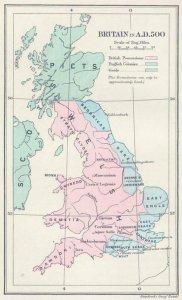
As Simon Weston writes in the foreword to Highlights of Welsh History,
‘The Welsh have always been fighters. Always seemingly caught up in some battle or other. Often against one another! But throughout history, it is this tenacity of spirit that has ensured the survival of this great people against all odds. Thankfully, not all these battles have been ones of bloodshed: there are great tales of cultural, spiritual and moral courage to be told too, as men and women of Wales have sought to defend and promote those values and virtues that have distinguished them as a breed apart over the centuries.’

Until well into the 12th century, the Welsh still referred to themselves as Britons. They treasured a set of fables and myths proving the Welsh to be the earliest and prime people of the British Isles. They never gave up on the dream of one day seeing the whole of Britain united again under their control, from London. Later they called themselves Cymry – fellow countrymen. Today, the Welsh word for Wales is Cymru.
The Celtic people lived in Britain from about 1,000BC, and were dominant until the coming of the Romans in 43AD. The Romans gradually pushed the Celts westwards and northwards, into Ireland, Scotland, Cornwall and Wales. Despite events like the destruction of the Druids on Anglesey by Suetonius Paulinus in 61AD, Wales was largely untouched by Roman occupation.
The art, language and traditions of the Celts were not much affected by the Roman occupation, so that when the legions left in 410AD, enough of the old culture remained to make it markedly different. The Celts spoke a language that had two distinct strands, Brythonic and Goedelic. Goedelic was spoken in northern Scotland and Ireland, Brythonic in Wales and Cornwall. (Also in Brittany in France, and even today native Welsh speakers visiting Brittany can understand some of the local dialect.)
Brythonic was also spoken in the kingdoms around modern-day Strathclyde, Carlisle and Edinburgh, and there were continuous links between there and Wales into the 6th century. But after the Romans left, the Saxons pushed north and west and cut the Welsh off from the other Celtic peoples. When King Offa of Mercia built his dyke in the eighth century to define his borders it also defined Wales as a separate entity for the first time.